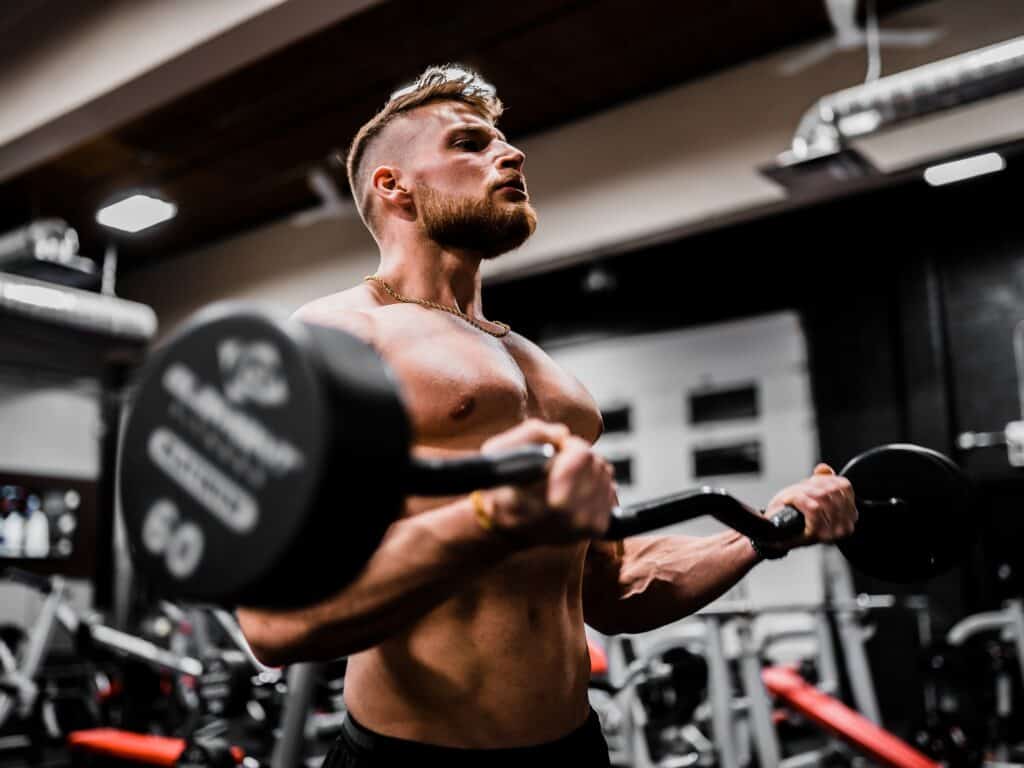Getting fit and healthy requires a lot of commitment and focus, especially if you’re setting yourself goals to reach. It’s very easy to slip into old habits, but in contrast to this, it’s also easy to get back on track with enough determination. A popular focus for those who choose to get fit is to build strength and muscle mass, improving their quality of life and appearance. It’s worth remembering that one of the major components of building muscle mass is actually our diets, as opposed to simply lifting weights or doing push-ups. If you’re not consuming the right foods and nutrients, then those extensive workout sessions aren’t going to provide you with the gains that you seek or expect.
Water
Staying hydrated is much more important than simply helping you get through a particularly intense workout. While drinking plenty of water during and after a workout is important, as it keeps your fluid levels from dropping too low and prevents you from suffering from the effects of dehydration. Without having enough water in your system, you can actually lose a significant amount of your energy reserves, and you may experience headaches and muscle cramps, among other things. As well as its impact on you when working out, it can also pose a problem when it comes to your diet. Water is incredibly important for your digestion and the absorption of other essential nutrients in this list, so make sure you drink plenty throughout the day, and not just at the gym.
Calcium
This mineral plays a vital role in preserving the strength and integrity of your bones. A lack of calcium can leave your bones weak and prone to injury such as fractures and breaks much easier than someone that gets plenty of calcium in their diet. This is often an argument against a vegan diet due to the lack of dairy products that contain calcium in abundance. However, contrary to this belief, calcium can be found in many different foods, including legumes, nuts, leafy greens, and even certain fruits like raspberries and blackcurrants. Not only does calcium help your bones, but it’s also responsible for the triggering of muscle contractions, and so a severe lack of calcium can impact your ability to exercise properly.
Potassium
Another nutrient that assists in the contraction of your muscles is potassium. However, this also serves another important role too. It actually transports things like water and other nutrients to our muscles, keeping them energized and healthy. It also helps to remove excess salt from your system through your kidneys. You can find potassium in many foods, and one that is most notable and well-known is the humble banana. Furthermore, you can also get plenty of potassium from kinds of seafood like salmon, king crab, black cod, and many more, and now you can get home seafood delivery to your doorsteps. Adding this to your diet will help strengthen your muscles and also reduce your risk of serious illnesses such as heart disease and hypertension.
Protein
As you’ll likely be aware, protein is one of the most important nutrients when it comes to building and repairing muscle. You need to get enough grams of protein into your diet to maximize your body’s ability to build up muscles after they’ve been damaged and torn during exercise. We need just under 1 gram of protein for every kilogram of weight each day to maintain a healthy weight and over 1 gram per kilo if you’re looking to gain muscle mass from exercise, although this can vary depending on your age as well. Protein digestion isn’t always the most effective either, especially with certain foods. This guide to protein digestion from Ingredient Optimized can provide you with tips on improving protein digestion and reducing your chances of developing uncomfortable symptoms like cramps and bloating. Steps include changing your diet, taking supplements, and even reducing your stress levels.
Glutamine
This is what is known as a conditionally essential amino acid, in that it’s only important for those that are doing intense workouts. It will help repair muscle tissue and repair your stomach and intestinal linings, which surprisingly get damaged with the stress of these intense exercises. Glutamine also helps regular digestive functions, improving your ability to process nutrients. It works to bolster your immune system, making it much easier to defend against pathogens. You can find glutamine in a number of different foods, but the best sources for it include red meat, chicken, fish, spinach, Brussel sprouts, and foods that have been fermented like sauerkraut.
Carbohydrates
As well as protein and other macronutrients like fats, carbohydrates are also incredibly important for your body’s overall functionality. These are the prime source of our energy, which is why they’re perfect for a pre-workout snack. Without having enough energy before you start exercising, you’re not going to be able to perform to the best of your abilities. But interestingly, carbohydrates serve another purpose too. They are actually another component of muscle building, supporting both growth and repair. These can be found in everything from bread and cereal to fruits and legumes.
Vitamin B12
While not directly impacting muscle growth, this essential vitamin is not to be dismissed. Vitamin B12 is very important for our bodies and provides many benefits to us, improving our daily lives. However, it does have an indirect effect on our bodies in that it helps to create our red blood cells. These cells, if you recall from high school biology class, transport oxygen around the body to muscles and organs. These red blood cells also help to metabolize certain nutrients like protein which are then used to build new muscle tissue and fix damaged ones.
Vitamin D
A lack of this nutrient contributes to certain health problems, especially psychological ones. Depression rates are much higher in people with a vitamin D deficiency, but it can also affect other aspects of our lives. Vitamin D can help to strengthen our bones and also strengthen our muscles as well. There aren’t a whole lot of foods that contain vitamin D, but your best sources are things such as fatty fish, orange juice, milk, eggs, and chestnut mushrooms. If you don’t eat these foods, it’s worth adding a vitamin D supplement to your diet and trying to get outside in the sunshine as often as possible, as UV rays are another source of this helpful vitamin.

